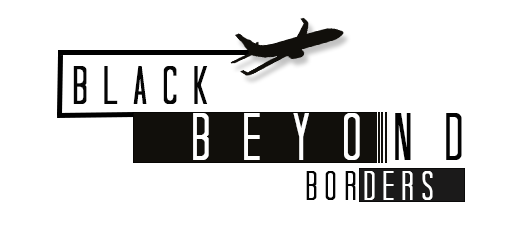Living as the hypen in African-American
“Where are you from?”
“America”
“No, before that?”
As African-Americans, we border the line of privileged and oppressed. To the world, we are held to a higher standard because we are Americans, yet we are still perceived as less-than because of our blackness at "home". While traveling I have been mistaken for an immigrant or refugee several times. Though for the most part people have been apologetic once they realize I am from America, the questioning of my origin quickly follows. Not matter how they ask, the true meaning of the question prevails “what part of Africa do your ancestors hail from”? Time and again, the conversation ends with an “I don’t know”. I am left with a hunger to discover what country is the true foundation of my existence.
Studying abroad as a black woman from America has forced me to battle stereotypes. In the eyes of the world, black women from America are expected to look like Beyoncé and only speak in American vernacular. This monolithic creation of blackness can and has been very damaging, but it has also led me to an even deeper understanding of how complex blackness is. I now question not only what it means to be American, but what it means to be an African-American woman. In living as the hyphen in African-American, I am both an insider and an outsider in the global context of America.
There have been many experiences that have stuck with me since coming to Europe. A standout of these is the time I was detained in the United Kingdom and believed to have been an immigrant. Even with my American passport as “proof” of my country of origin, I was pushed to answer endless questions my reasoning for coming to Europe. Though I was eventually allowed to leave, I walked away with an immigration stamp in my passport. In that instance I knew that my passport didn’t matter. It hadn’t saved me from discrimination, nor did my status as an American. I knew that as long as I lived with black skin and coarse hair, nothing would save me from discrimination.
In the Netherlands, there is a lot of separation among groups of color, specifically for those who Americans would perceive as black people. However, many of these people will identify as Afro-Surinamese or Caribbean Dutch before they identify as black. I’ve found that many individuals here try to distance themselves from blackness due to the still prevalent colonial history and the pressure to “assimilate.” This is one of the many reasons why the anti-racist struggle here is so much of a struggle. Activists are fighting for an identity that many are not ready to embrace. I realize now that took for granted the unifying American ideal that we, as black people, are all lost in America together.
Living as the hyphen in African-American is bittersweet. I have seen that as African-Americans, many people of this world will only want to accept the latter part of this designation--the part of which we had no opportunity to claim--and that still weighs less than the first on a global scale. Yet, in a weird way, I desire to be back in America more than I would have ever imagined. I have found myself yearning just as much as I find myself learning. Sometimes it feels as if our blackness is all we have.
